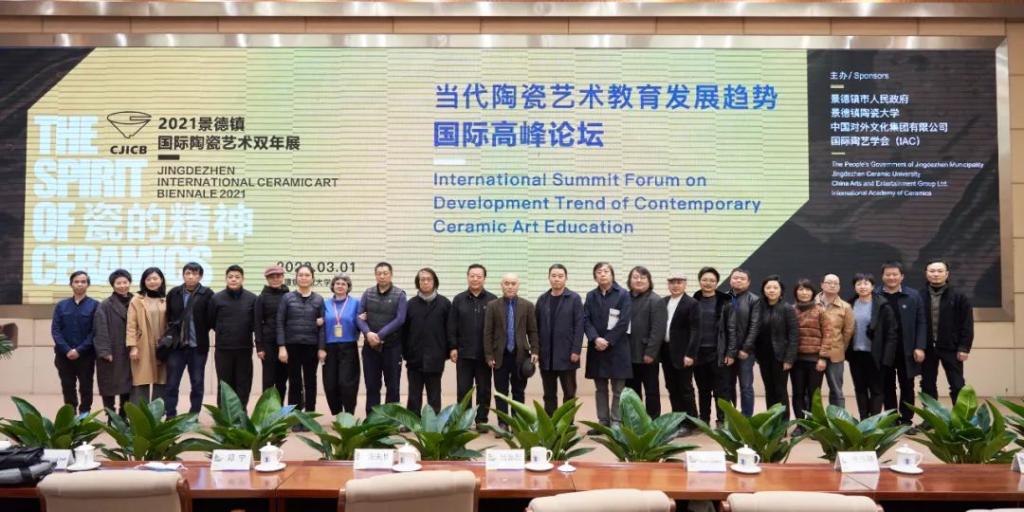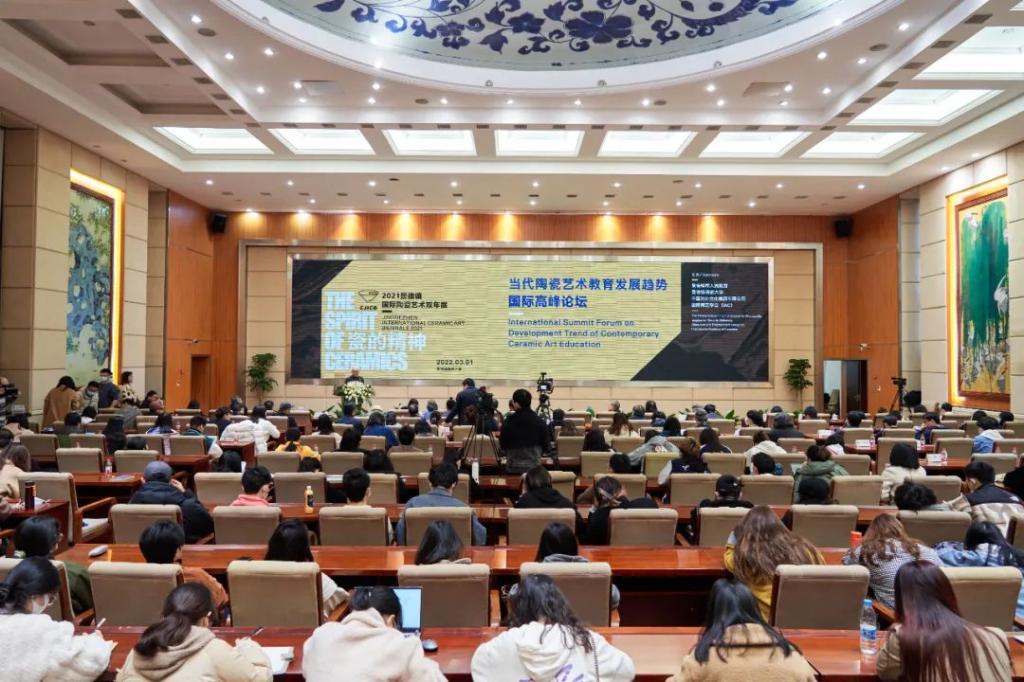
As one of the activities of The Spirit of Ceramics: 2021 Jingdezhen International Ceramic Art Biennale, on the morning of March 1st, The inauguration ceremony of The Ceramic Road International Ceramic Education Alliance and international forum on “Trends in Contemporary Ceramic Art Education”was held in Jingdezhen Ceramic University. Wang Jianghua, Member of Jiangxi Provincial Education Committee and Deputy Director of the Department of Education of Jiangxi Province, attended the activity and delivered a speech, Li Liangzhi, Secretary of the Party Committee of Jingdezhen Ceramic University, presided over the inauguration ceremony, and Lyu Pinchang, Deputy secretary of the Party Committee of Jingdezhen Ceramic University (JCU) and Vice President (organizing the administrative work) of JCU delivered a speech. The two representatives of the Alliance's chairman units who could not be present due to the pandemic - Wayne Higby, representative of the Alfred University Art Museum, and Jacques Kaufmann, representative of the International Academy of Ceramics (IAC) - sent video messages.
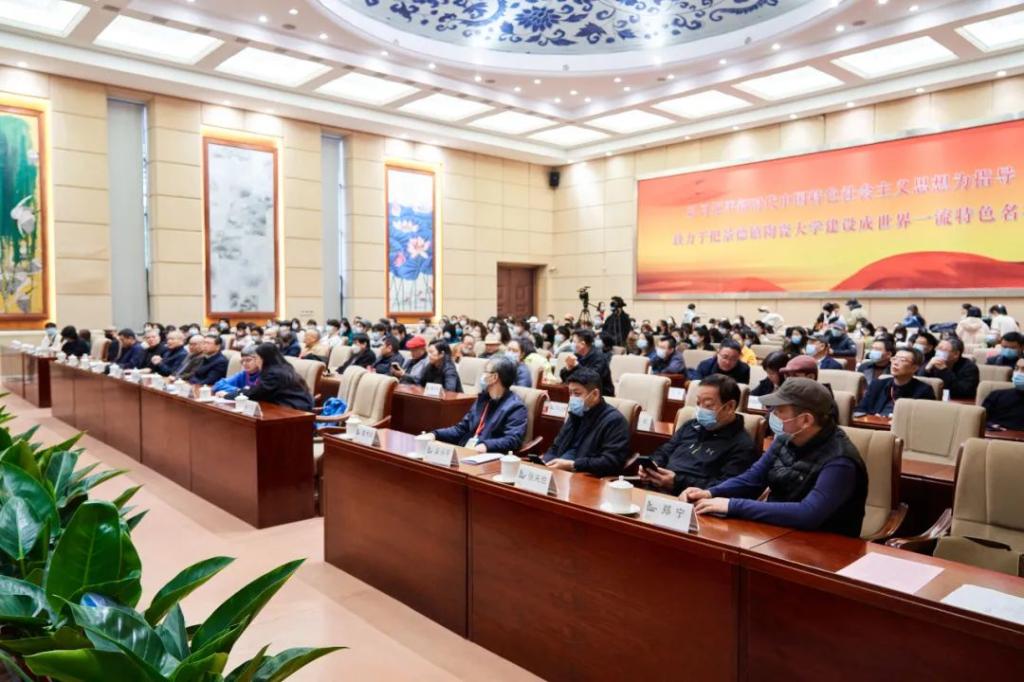
Liu Zheng, Deputy Secretary of the Party Committee of China Academy of Art, Chen Yuqian, Former President of Jingdezhen University and professor of Jingdezhen Ceramic University, Lei Jiehua, Director of Department of International Cooperation and Exchange of the Department of Education of Jiangxi Province, Wu Yongping, Zhang Wei, Guo Hongmei, (Professors of Central Academy of Fine Arts), Zhang Fuye, Zheng Ning(Professors of Academy of Art and Design of Tsinghua University), Zhu Legeng, Professor and Dean of Art Department of Chinese National Academy of Arts, Fang Lili, Researcher of Chinese National Academy of Arts, Zhi Min, Executive Vice President of Sculpture Department of Chinese National Academy of Arts, Yang Jianping, Luo Xiaoping, Liu Jianhua, (professor of Shanghai Academy of Fine Arts), Yang Wei, Professor of Fine Arts Academy of Hunan Normal University, Lu Bin, Professor of the School of Design of Nanjing University of the Arts, Meng Fuwei, Professor of Sichuan Fine Arts Institute, Yuan Hong, Professor of Shandong College of Arts, Wei Hua, Vice Dean of School of Arts and Crafts of Guangzhou Academy of Fine Arts, Jackson Li (Li Jianshen), Lead Manager of Jingdezhen Sanbao Ceramic Art Village, Song Weiguang, Editor-in-Chief of Chinese Sculpture Magazine, Wu Ming, Master of Chinese Arts and Crafts, Mark Luthald, Professor of New York University, Felicity Eylieef, Professor of Royal College of Art, He Qian, Chairman of the Guangdong KITO Ceramics Group Co. Ltd., Meng Shufeng, Artistic Advisor of Shaanxi Hantang Qingyun Cultural Industry Co., Ltd., Lyu Jinquan, Hu Yinjiao,(Vice President of Jingdezhen Ceramic University) and Heads of relevant schools of Jingdezhen Ceramic University attended the activity.
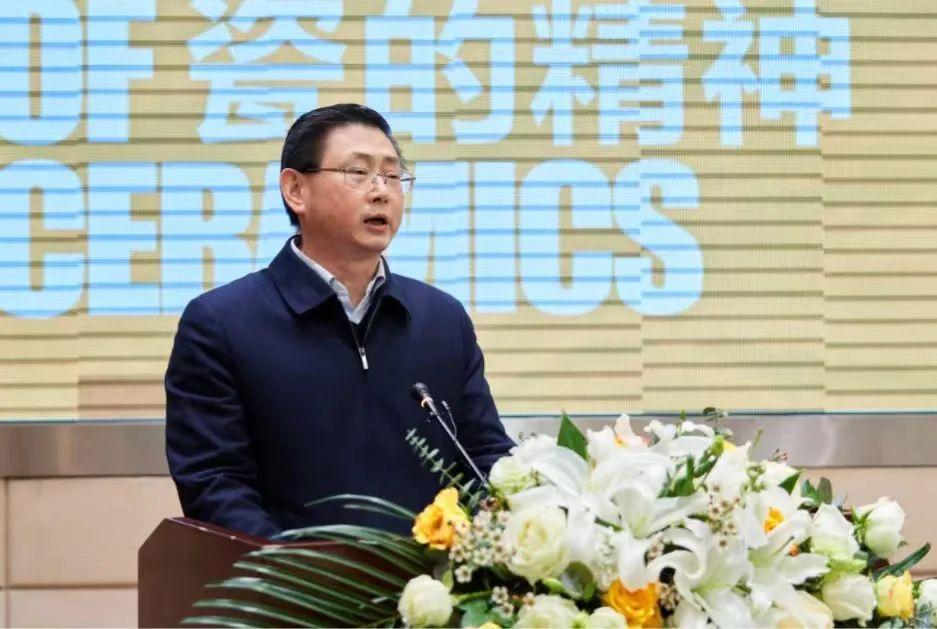
Wang Jianghua, Member of Jiangxi Provincial Education Committee and Deputy Director
of the Department of Education of Jiangxi Province, delivered a speech.
Wang Jianghua pointed out in his speech that, as a university with a long history and distinctive characteristics in Jiangxi Province, Jingdezhen Ceramic University has always taken the mission of promoting Chinese ceramic culture and spreading the excellent Chinese traditional culture as its role in the long-term school-running practice. He hoped that Jingdezhen Ceramic University will take this opportunity to enhance its school-running characteristics, deepen its international school-running practice, take the lead in the integration of jiangxi universities into the initiative of the Ceramic Road, and further strengthen its cooperation with institutions of higher learning and scientific institutions in countries along the Ceramic Road route. He also hoped Jingdezhen Ceramic University will strive to explore the construction of a new mode of international ceramic cultural exchange and cooperation, and play a greater role in promoting Chinese ceramic culture and cultivating high-level international talents. As the competent department of education, we will continue to support, and attach importance to the construction and development of Jingdezhen Ceramic University, and encourage universities in Jiangxi Province including Jingdezhen Ceramic University to actively participate in the Ceramic Road, and give full play to the basic and leading role of education in the building of the Ceramic Road.
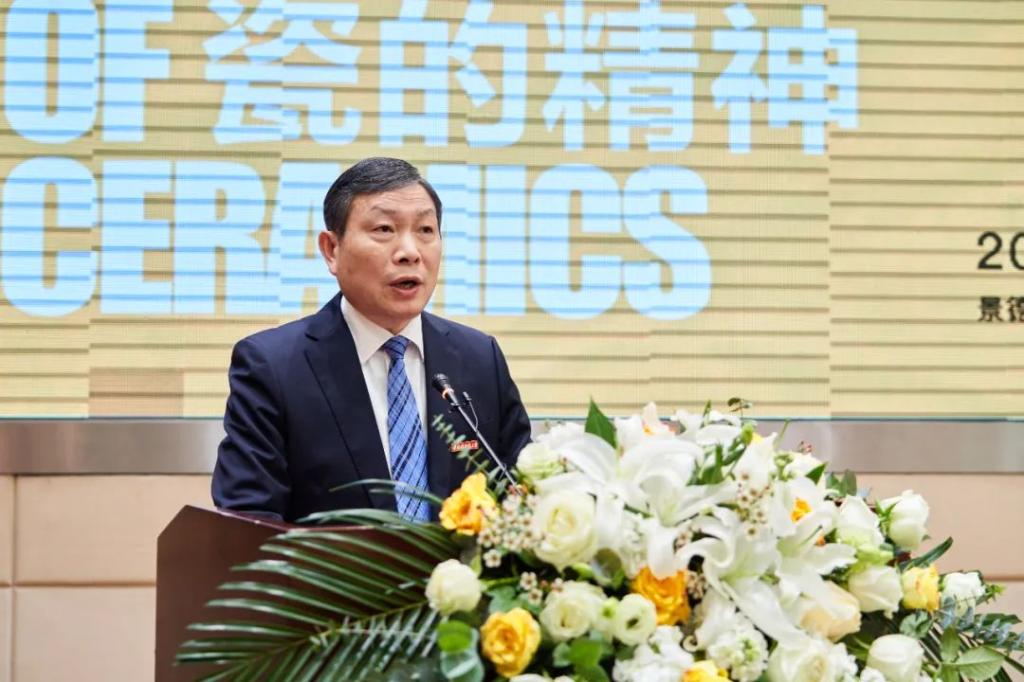
Li Liangzhi, Secretary of the Party Committee of Jingdezhen Ceramic University,
presided over the inauguration ceremony.
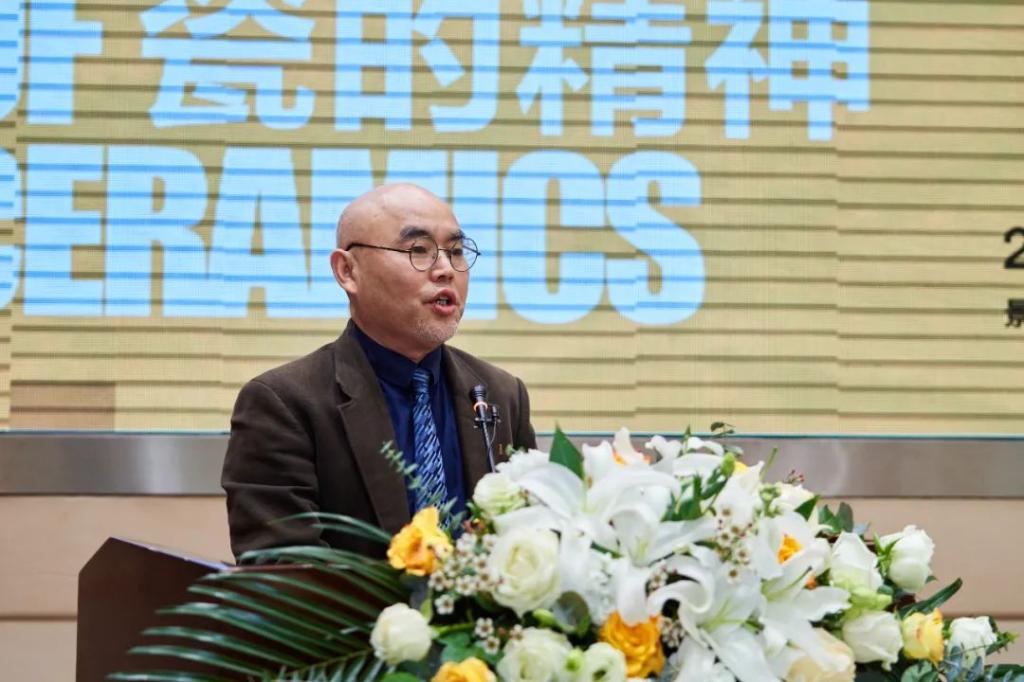
Lyu Pinchang, Chief Curator of Jingdezhen International Ceramic Art Biennale, Deputy Secretary of the Party Committee of Jingdezhen Ceramic University and Vice President (organizing the administrative work) of Jingdezhen Ceramic University, delivered a speech.
Lyu Pinchang pointed out that in recent years, Jingdezhen Ceramic University, as one of the universities with a long history of education, profound industry background and distinctive disciplines, has consciously acted as the messenger of traditional Chinese culture and played an important role in the field of international ceramic education. He hoped that the establishment of the alliance can promote and accelerate the inter-school communication, personnel training, scientific research cooperation, cultural communication, think tank construction and other aspects of exchanges and cooperation among Alliance members, deeply explore the new mechanism of cross-border training and cross-border mobility of talent training, create a ceramic higher education community, play a demonstrative and leading role in ceramic education and talent training, and contribute to the cohesive development of human civilization and the open cooperation of ceramic education. We sincerely invite universities and research institutions of ceramic education at home and abroad to join the Ceramic Road International Ceramic Education Alliance and look forward to conducting close exchanges and cooperation with members of the alliance.
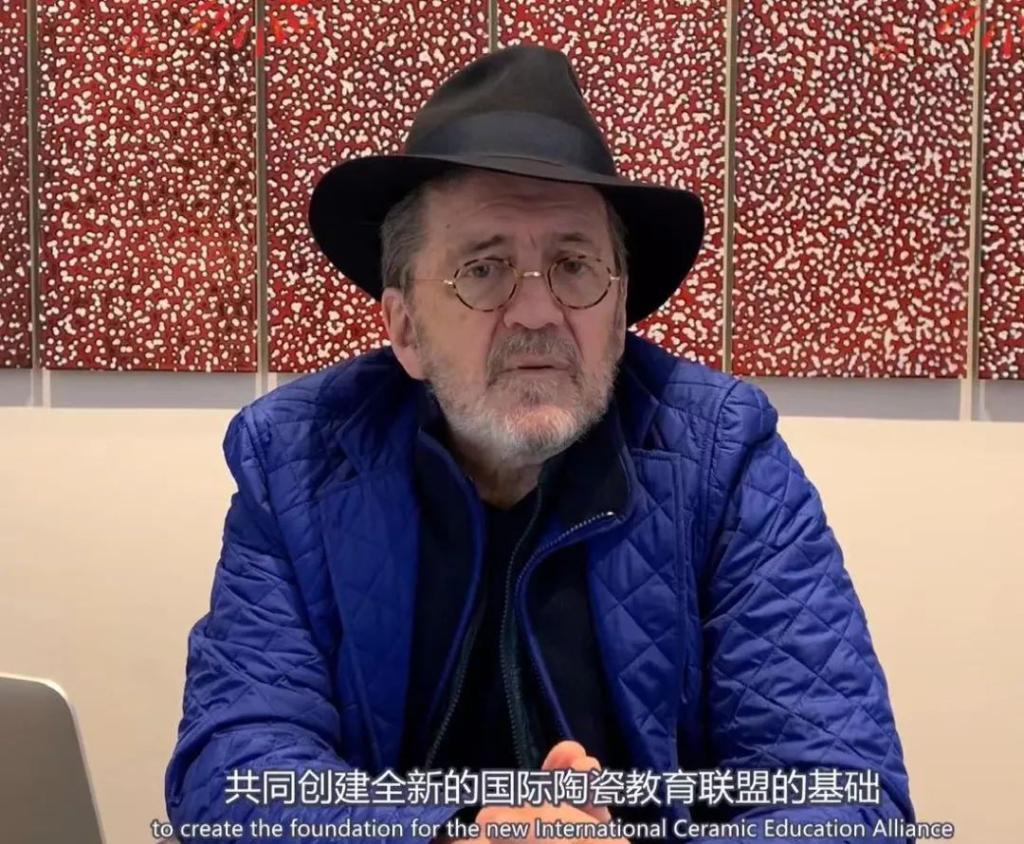
Wayne Higby pointed out that Alfred University signed an exchange agreement with Jingdezhen Ceramic University in 1994 and established a relationship with the International Academy of Ceramics in 1998. For more than 20 years, Jingdezhen Ceramic University, International Academy of Ceramics and Alfred University have maintained a close relationship with each other. Because of this relationship, our friendship has changed the global ceramic art and even the history of ceramic art. These are the foundations for Jingdezhen Ceramic University, International Academy of Ceramics, and Alfred University Art Museum to jointly create a new international ceramic education alliance. With the spirit of close friendship and cooperation, we will surely win a bright future together.
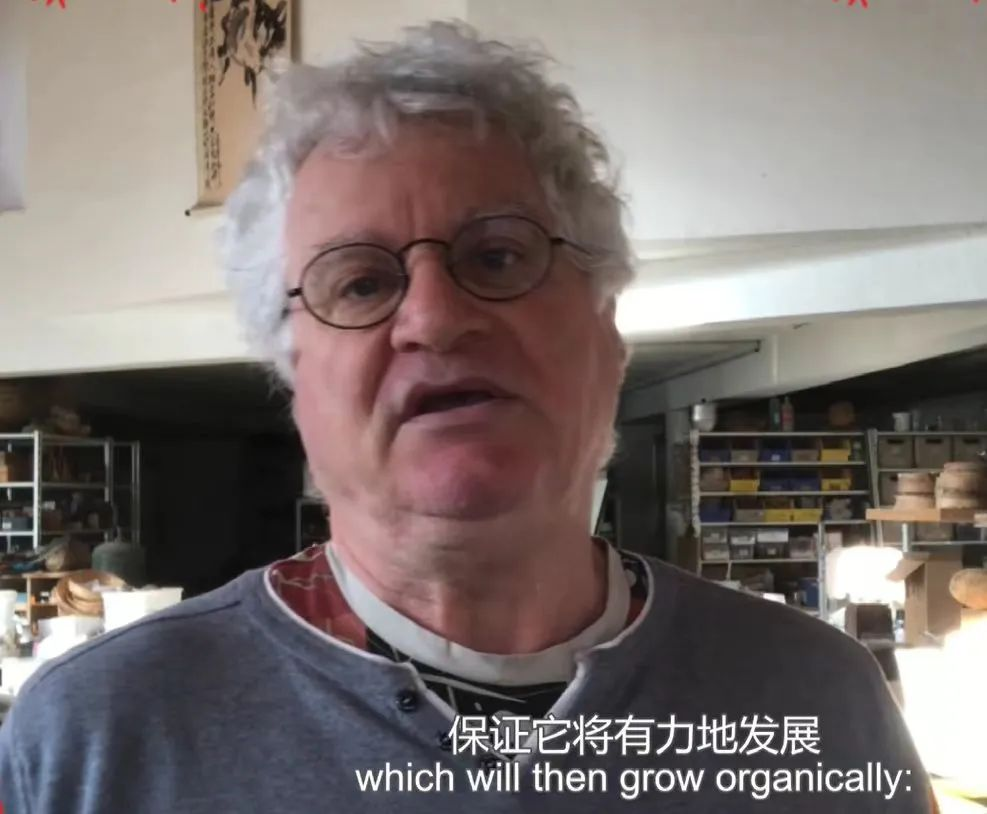
Jacques Kaufmann pointed out that Jingdezhen Ceramic University has actively participated in the global ceramic art exchange, created an international academic exchange environment, and made a positive contribution to the exchange and development of contemporary ceramic art in the world. Today, we bring together three institutions, Jingdezhen Ceramic University, the International Academy of Ceramics, and Alfred University Art Museum, as the founding pillars of the International Ceramics Education Alliance, providing a unique platform for professionals in the field of ceramics. The alliance will open up the horizons of theoretical and applied research, work together to build a future community, and further develop international exchanges that can influence the future of ceramic art.
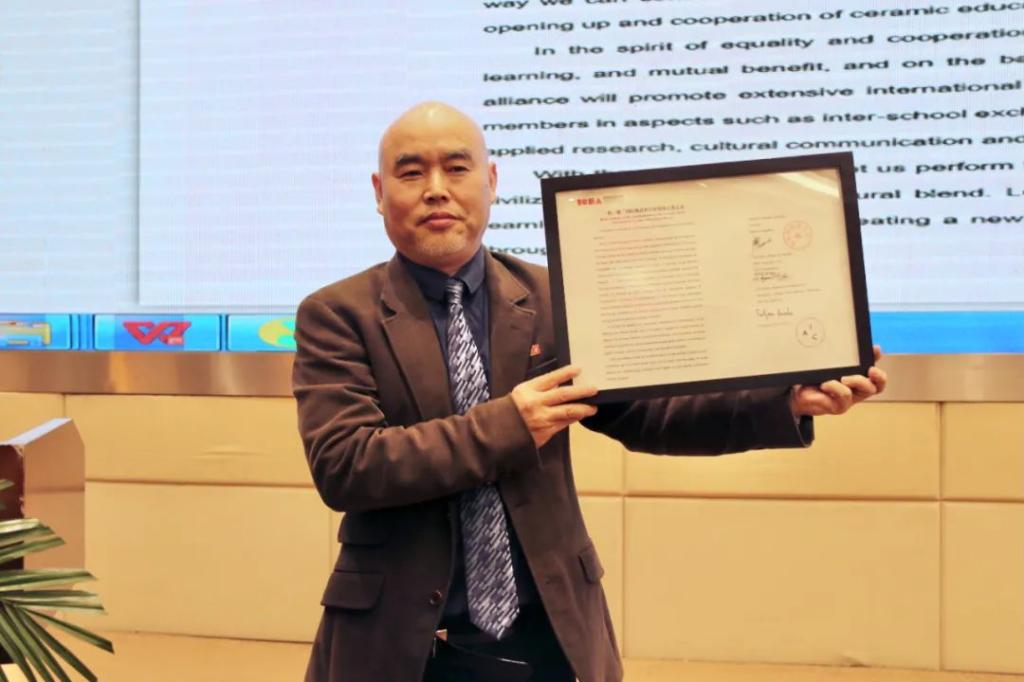
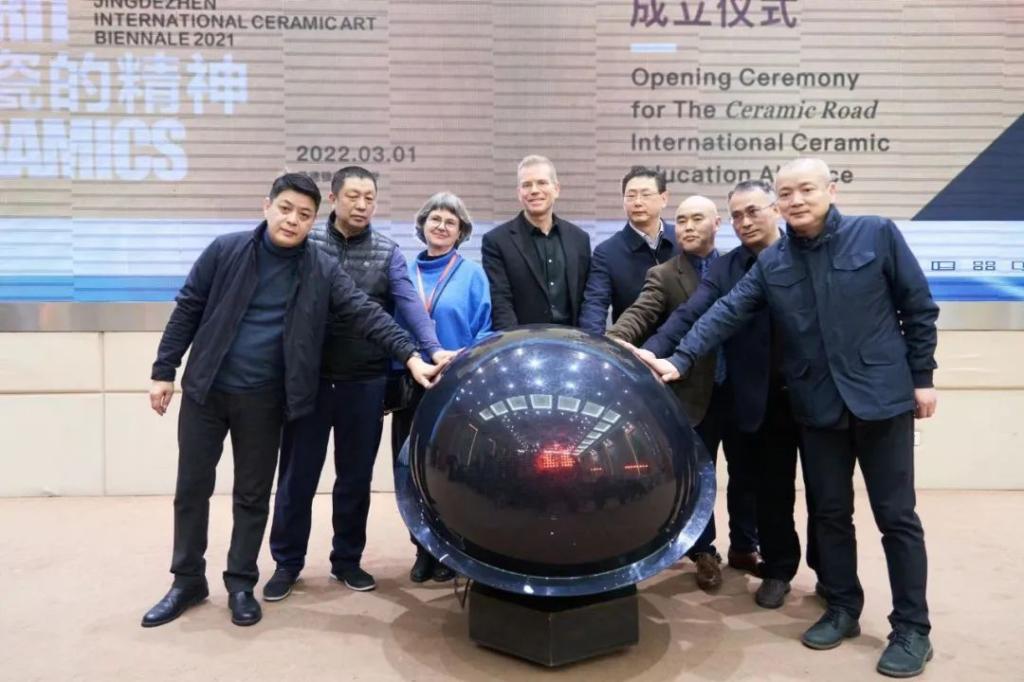
At the inauguration ceremony, Lyu Pinchang showed the memorandum on the establishment of the the Ceramic Road International Ceramic Education Alliance signed by representatives of Jingdezhen Ceramic University, Alfred Ceramic Art Museum and International Academy of Ceramics. Eight representatives including Wang Jianghua and Lyu Pinchang jointly launched the kick-off ball for the establishment of the alliance. It is reported that the Ceramic Road International Ceramic Education Alliance, initiated by Jingdezhen Ceramic University, The Alfred Ceramic Art Museum at Alfred University, and the International Academy of Ceramics (IAC), and joined by colleges and universities with ceramics education around the world, aims to form a non-governmental, non-profit, open and international ceramic education platform to promote international exchanges and cooperation. In the spirit of “equality and cooperation, openness and inclusiveness, mutual learning and mutual benefit”, and on the premise of respecting cultural diversity, the Alliance promotes extensive international exchanges and cooperation among its members in such aspects as the inter-school communication,personnel training, scientific research cooperation, cultural communication and think tank construction.
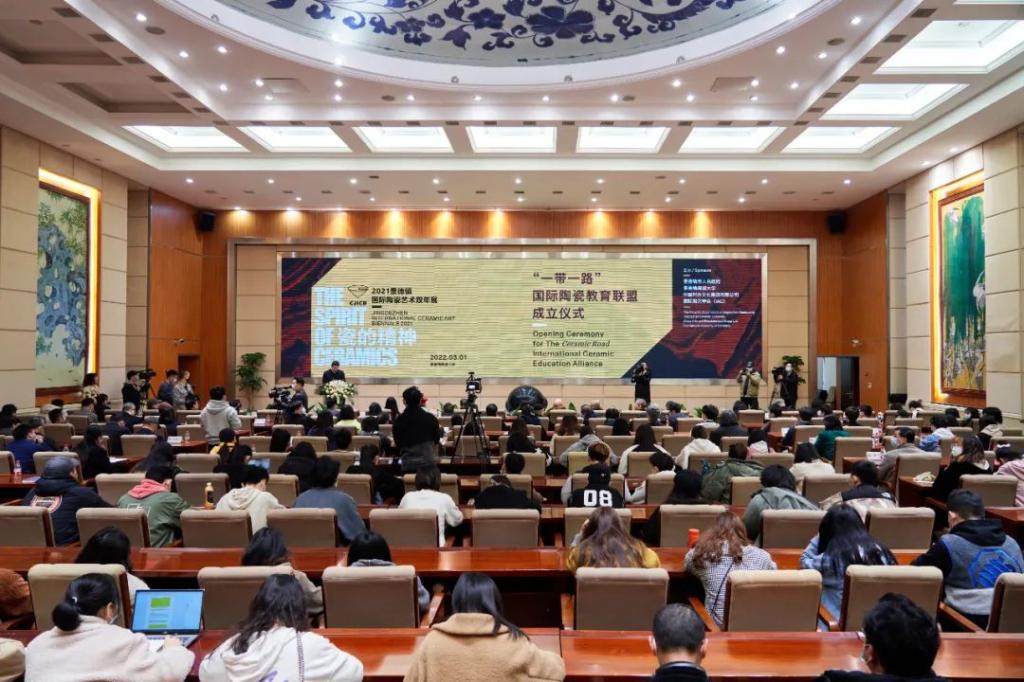
International Forum on “Trends in Contemporary Ceramic Art Education”was held after the ceremony, the forum has gathered experts and scholars in the field of ceramic art education all over the world from Jingdezhen Ceramic University, Central Academy of Fine Arts,Royal College of Art,University of Costa Rica,Chinese National Academy of Arts, Nanjing University of the Arts, Sichuan Fine Arts Institute, Academy of Arts and Design of Tsinghua University, Hongik University, Silpakorn University, Thailand, New York University and other universities, has focused on the two themes of “The Trend of Global Ceramic Art Education in the Era of Pandemic” and “Ceramic Art Innovation and Local Experience from an International Perspective”, and has exchanged the views and ideas from the perspective of contemporary ceramic art education. Lyu Jinquan, Vice President of Jingdezhen Ceramic University, hosted the forum.
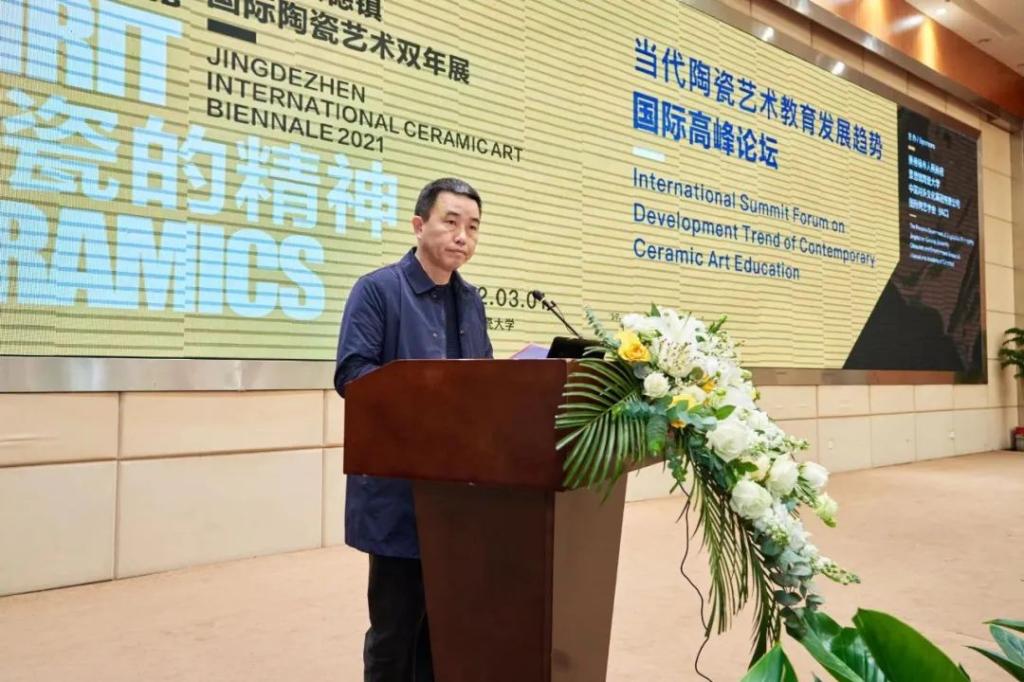
Lyu Jinquan, Vice President of Jingdezhen Ceramic University, hosted the forum.
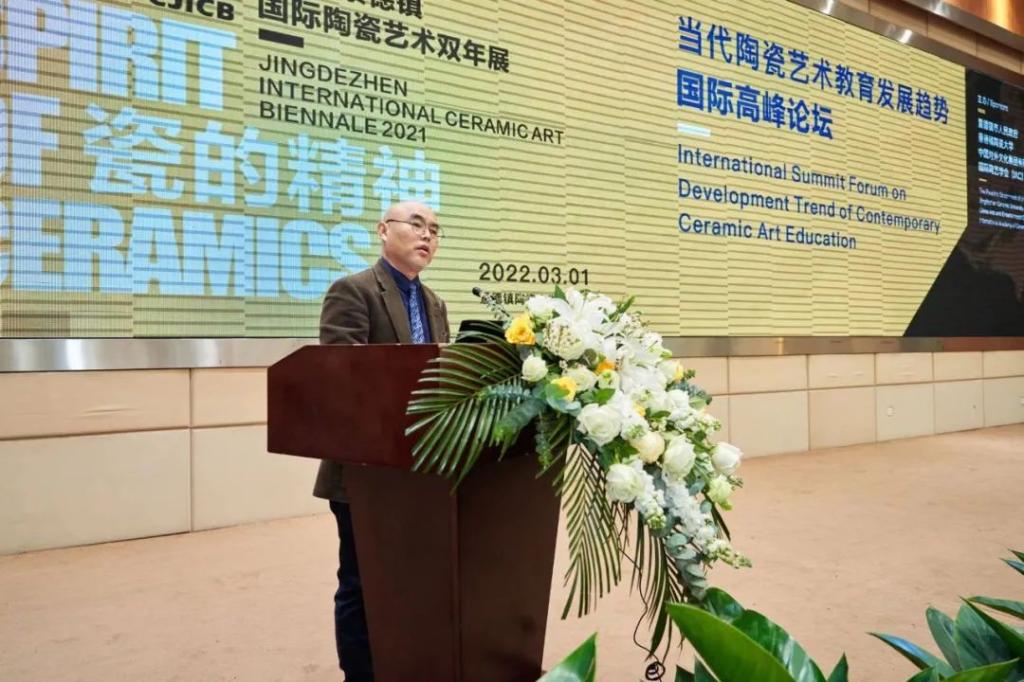
Lyu Pinchang, Deputy secretary of the Party Committee of Jingdezhen Ceramic University and Vice President (organizing the administrative work) of Jingdezhen Ceramic University, delivered a keynote speech. He analyzed the development of contemporary ceramic art education from three aspects: our measures and solutions under the “post-pandemic” situation, the cross-border integration and thinking of contemporary ceramic art education, and the issue of maintaining regional characteristics. He said that the development of ceramic art education should also cross the border of disciplines, regions, and ideas. In the new era, contemporary ceramic art education will also have a new direction. While communicating and integrating, ceramic art education cannot ignore the regional characteristics and should give full play to the unique advantages of different regions.
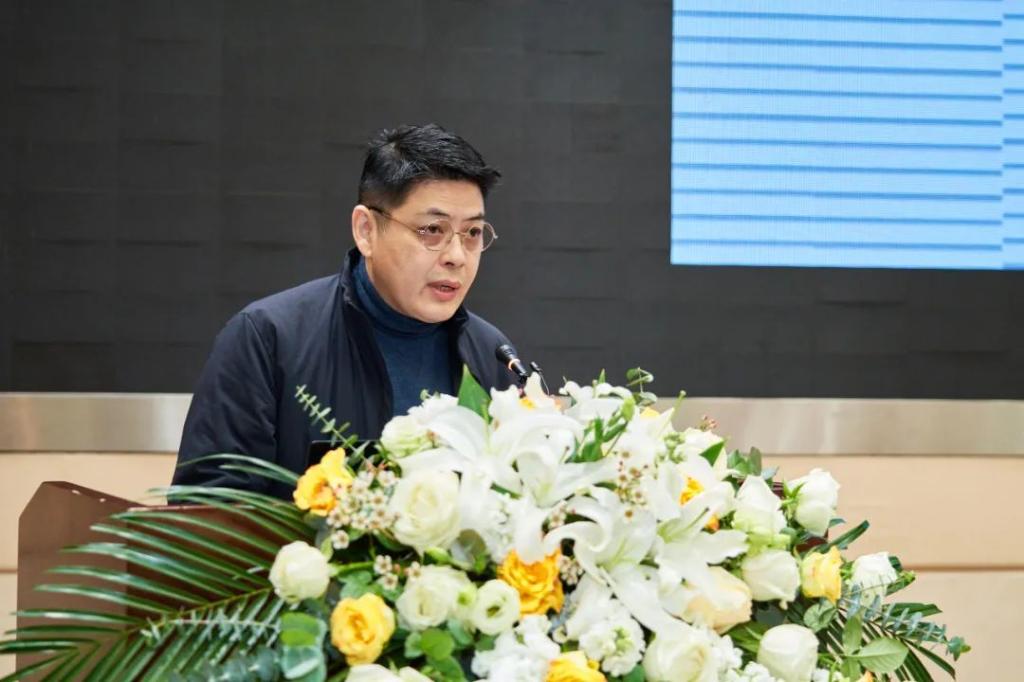
Wu Yongping, Professor of Central Academy of Fine Arts, delivered a keynote speech. He shared the essence and focus of ceramic art innovation based on the ceramic art education of Central Academy of Fine Arts. He believed that the study of contemporary art, whether it is made by ceramic or not, must first solve the conceptual problem. In addition, the use of mixed materials may be a way for ceramics to present ideas of contemporary art. As a contemporary artist and an educator, we should also have a sense of cultural integration and social responsibility, and be concerned with the state of human existence, the meaning of life, and the value of life.
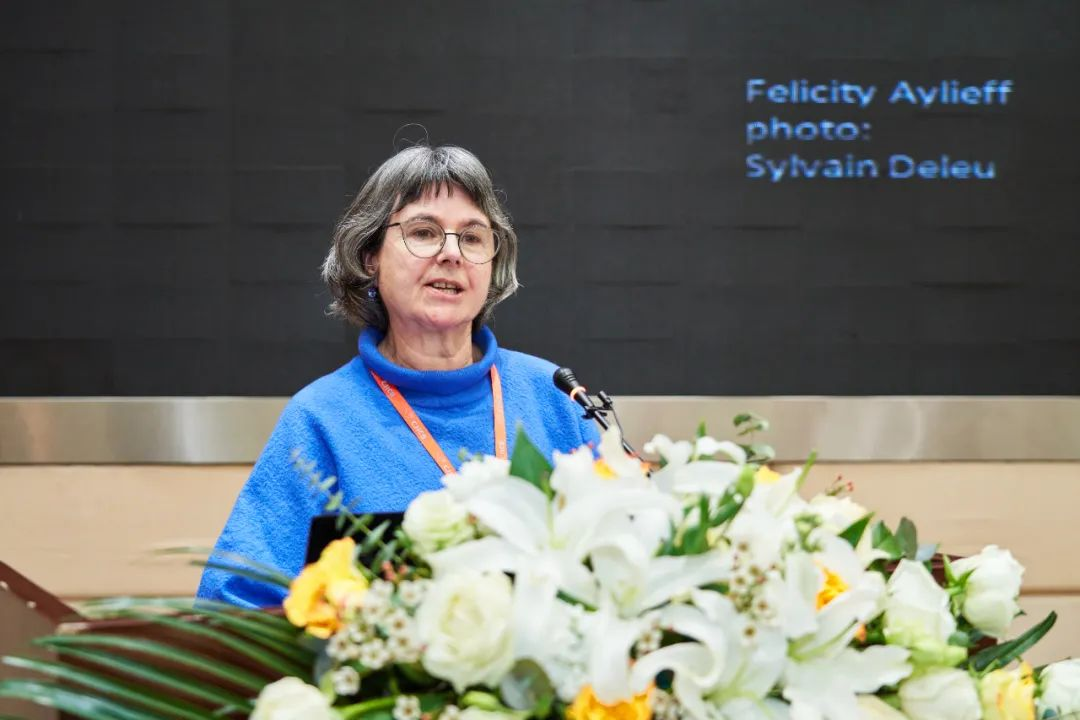
Felicity Aylieff, Professor of Royal College of Art, delivered a keynote speech. She combined the works created in the context of the pandemic with the power of media to explain the direction of global ceramic art education in the era of the pandemic. She said the pandemic has given us an opportunity to review and innovate other ways of conducting ceramic education. We can see ceramics as a kind of global education, holding workshops for students in turn through different ceramic centers around the world, and believe that the key to the future of ceramic education is flexibility and collaboration.
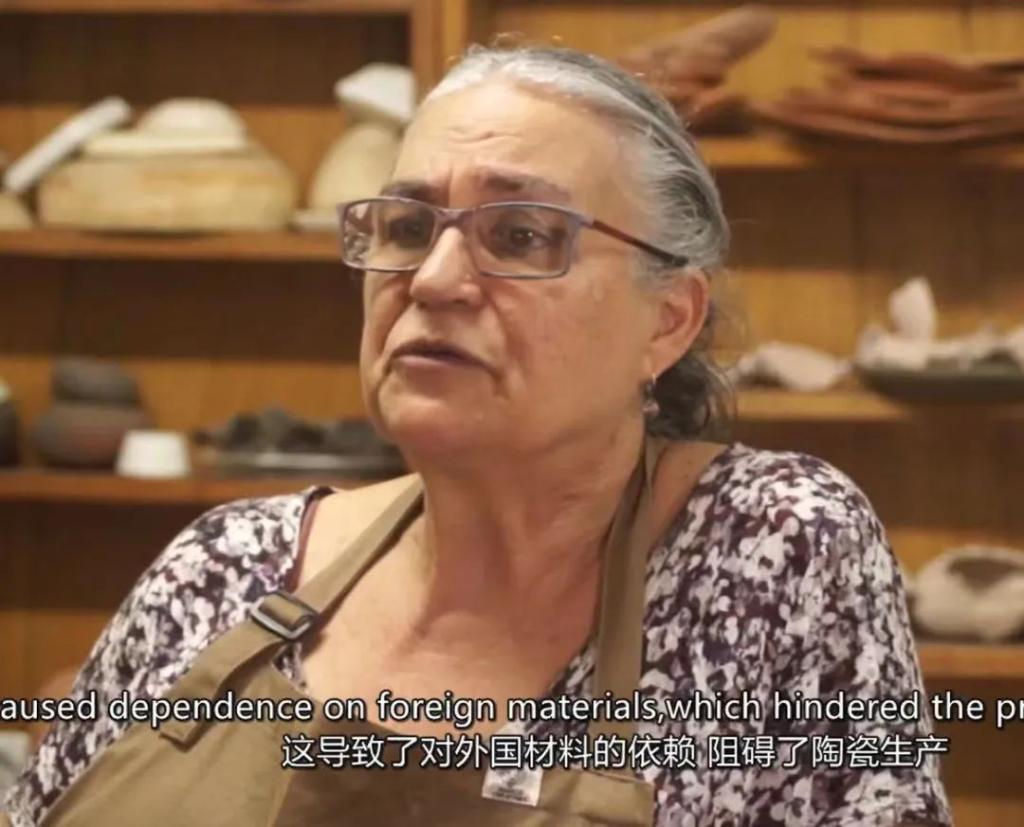
Ivette Guier Serran, Professor and Director of the Department of Ceramic Art of University of Costa Rica, delivered a keynote speech by video. She shared her thought on the spirit of contemporary ceramic with her own experience of witnessing the development of Ceramics in Costa Rica. She said that while contemporary ceramic art has made great achievements, there is a lack of effective national heritage protection policies, and we, as a ceramic art worker, should make efforts and contributions to the heritage protection of the historic district.
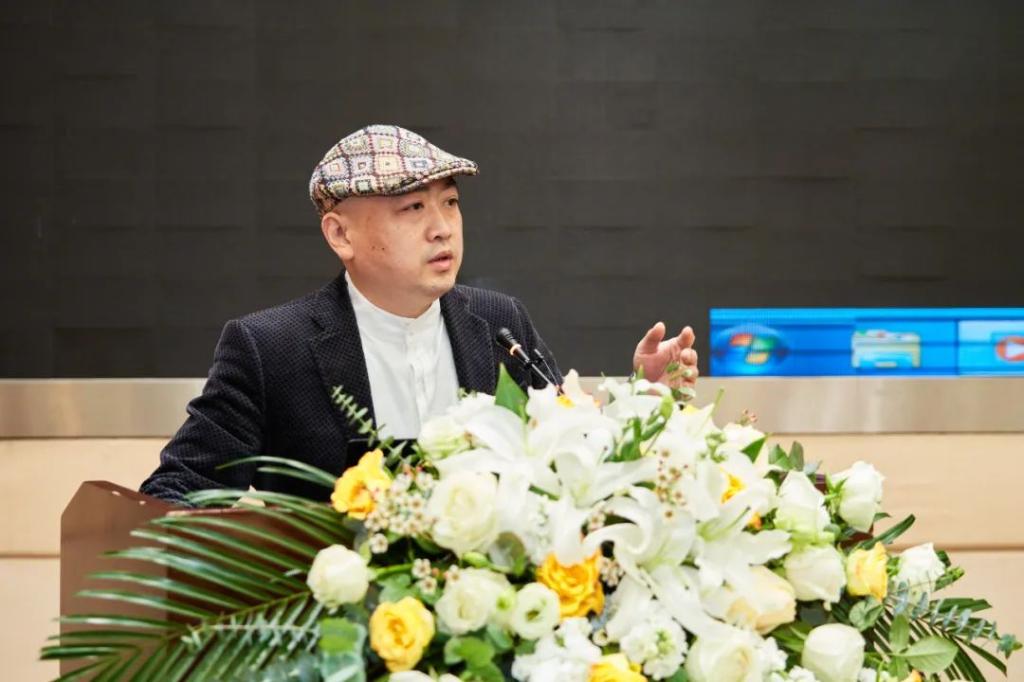
Zhi Min, Executive Vice President of Sculpture Department of Chinese National Academy of Arts, delivered a speech at the forum. Through the introduction and elaboration of his solo exhibition, he told the audience about the various cultural expression of civilization, which see ceramic as a world language and ceramic media. He said that Chinese culture is diversity and has multiple meanings, and ceramic culture is more cosmopolitan, oriental, local and national. Therefore, he takes this as his basic creation method and principle to create and exhibit.
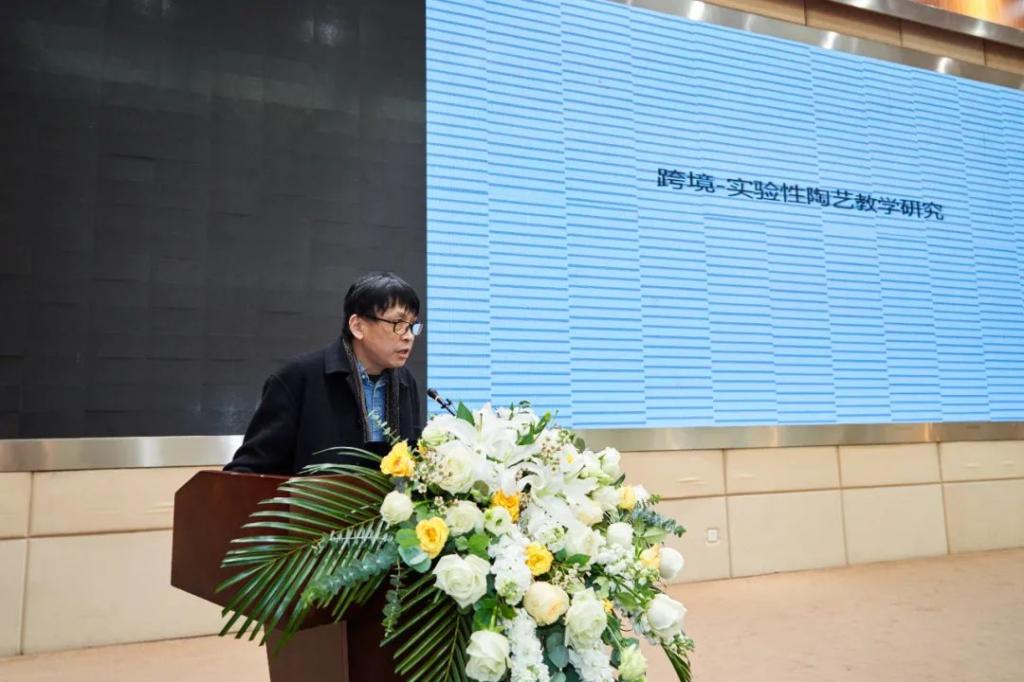
Lu Bin, Professor of the School of Design of Nanjing University of the Arts,delivered a speech at the forum. He showed the experimental ceramic video works of Nanjing University of the Arts by PPT, showed the video created by the students of Nanjing University of the Arts, and shared the unique education concept and teaching method of Nanjing University of the Arts. He said that the development of new technologies in the new era has promoted the change of art forms, and he will continue to seek new directions for the development of contemporary ceramics and further promote the development of experimental ceramics courses in the school.
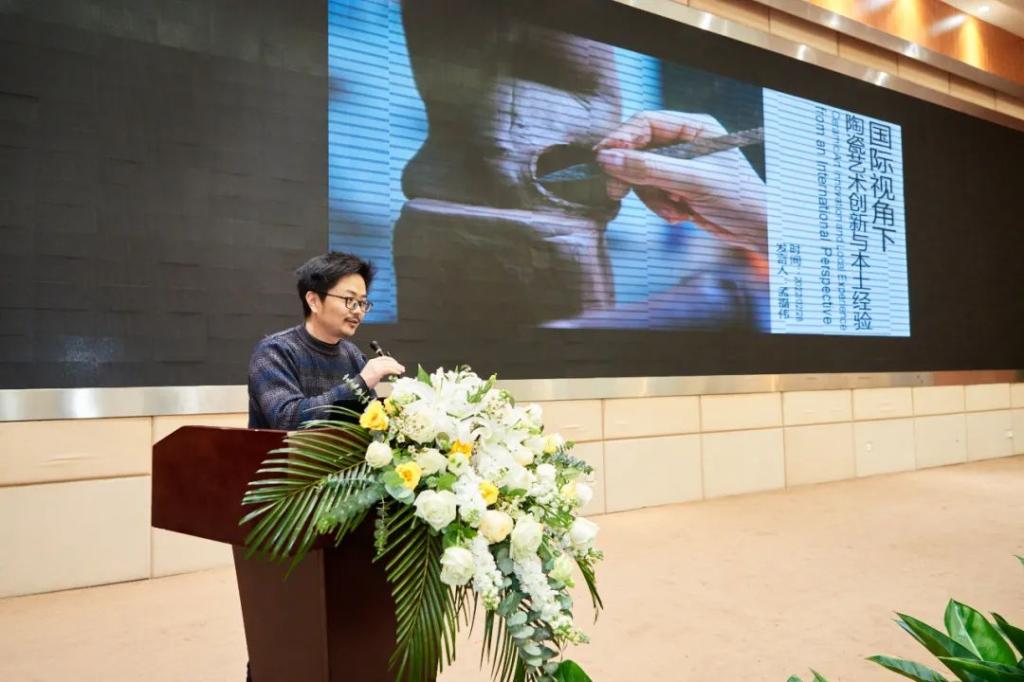
Meng Fuwei, Professor of Sichuan Fine Arts Institute, delivered a speech at the forum. He shared the innovation and local experience of ceramic art from an international perspective, deeply expounded the philosophy of cultural inheritance and innovation, and vividly explained how to tell Chinese stories from his own experience. He believes that the aesthetic thought of harmony and diversity in China is of guiding significance to artistic creation. We should inherit the gene of cultural consciousness, innovate and inherit local experience and critically absorb foreign culture.
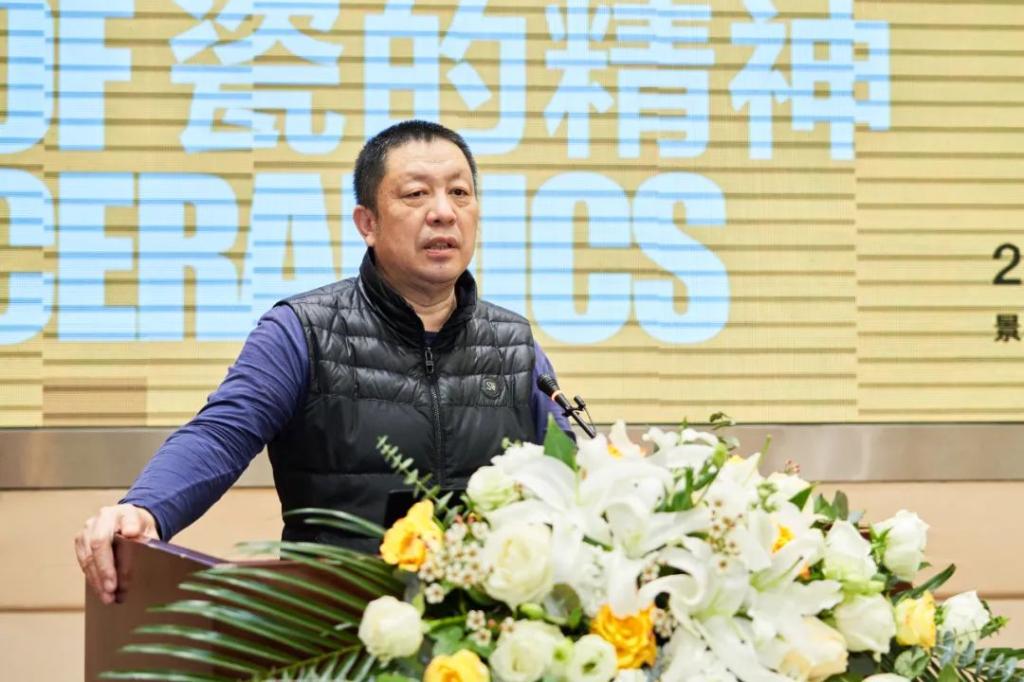
Zheng Ning, Professors of Academy of Art and Design of Tsinghua University, delivered a speech at the forum. He talked about his teaching experience and feelings over the years, and believed that it was necessary to strengthen communication at home and abroad, and that online mode could improve students’ ability of positive thinking and practice. He praised the establishment of the International Ceramic Education Alliance and is looking forward to the series of exchange activities in the future. He said that Jingdezhen Ceramic University should assume China’s ceramic education mode, lead other universities study ceramics and let them known to the world, and encourage students to succeed in the field of ceramic art.
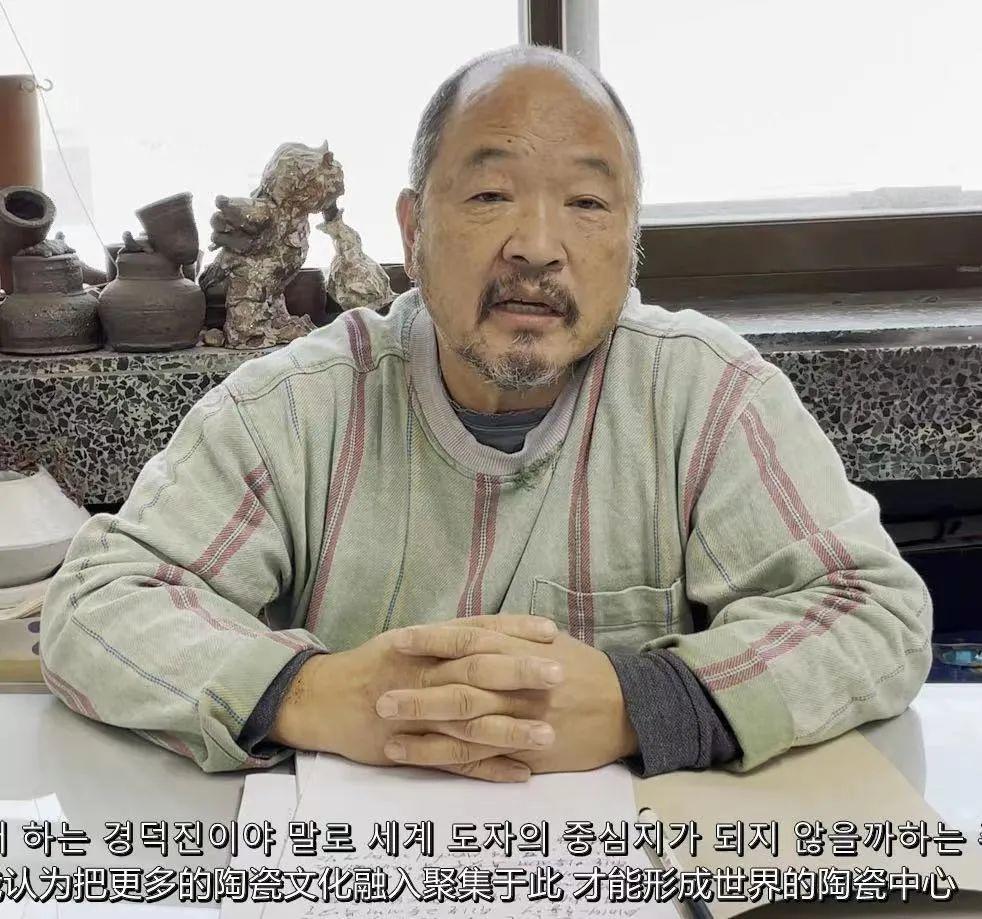
Inchin Lee,Professor of Hongik University, delivered a video speech at the forum. He shared his experience in Jingdezhen more than 20 years ago, saying that Jingdezhen is not only full of traditional culture, but also can push forward the traditional culture to blossom into new charm. He praised the atmosphere of Jingdezhen's thousand-year-old ceramic culture and said that Jingdezhen is born with excellent endowment to be the porcelain capital. Meanwhile, from the perspective of cultivating students, he thought that seniors and elders should give more help to young scholars.
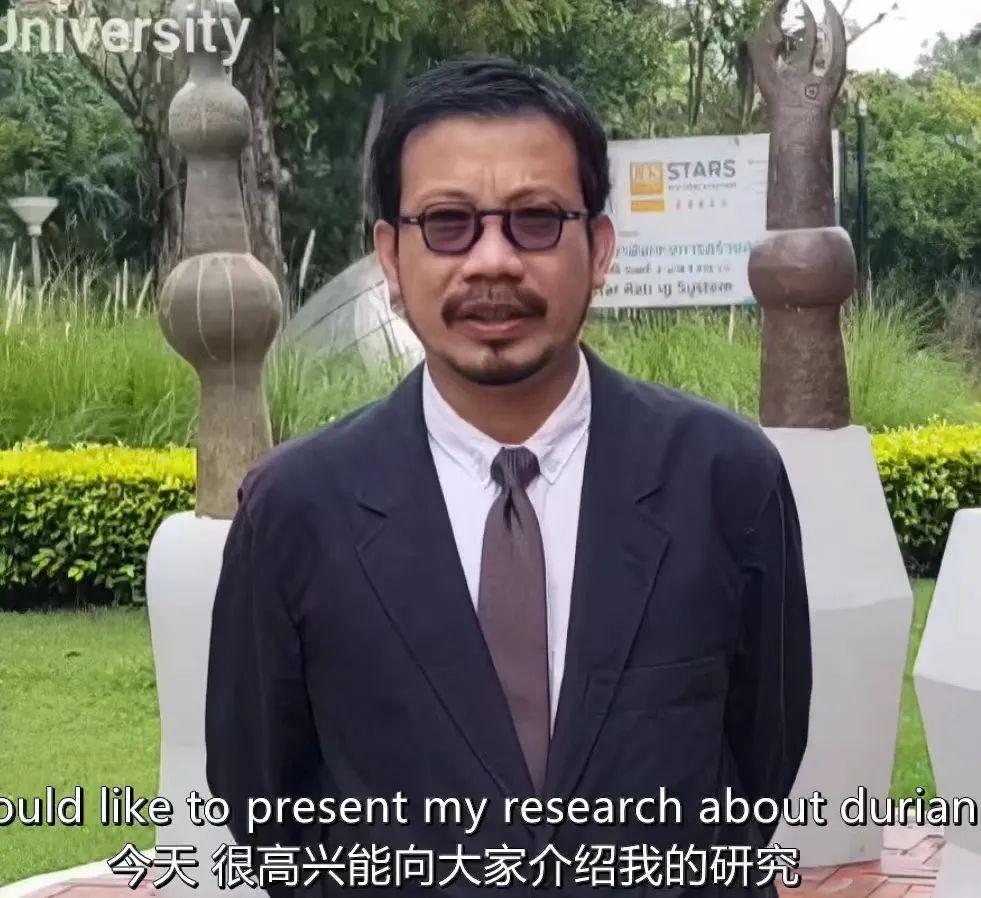
Thatree Muangkaew,Professor of Silpakorn University, Thailand, delivered a video speech at the forum. He shared his research on the use of durian peels for ceramic works. This research not only satisfied his exploration of fruit ash glaze, but also alleviated the environmental pollution problem to some extent. He said that he would continue his research and experiments using other fruit waste, and encouraged guests to try such experiments.
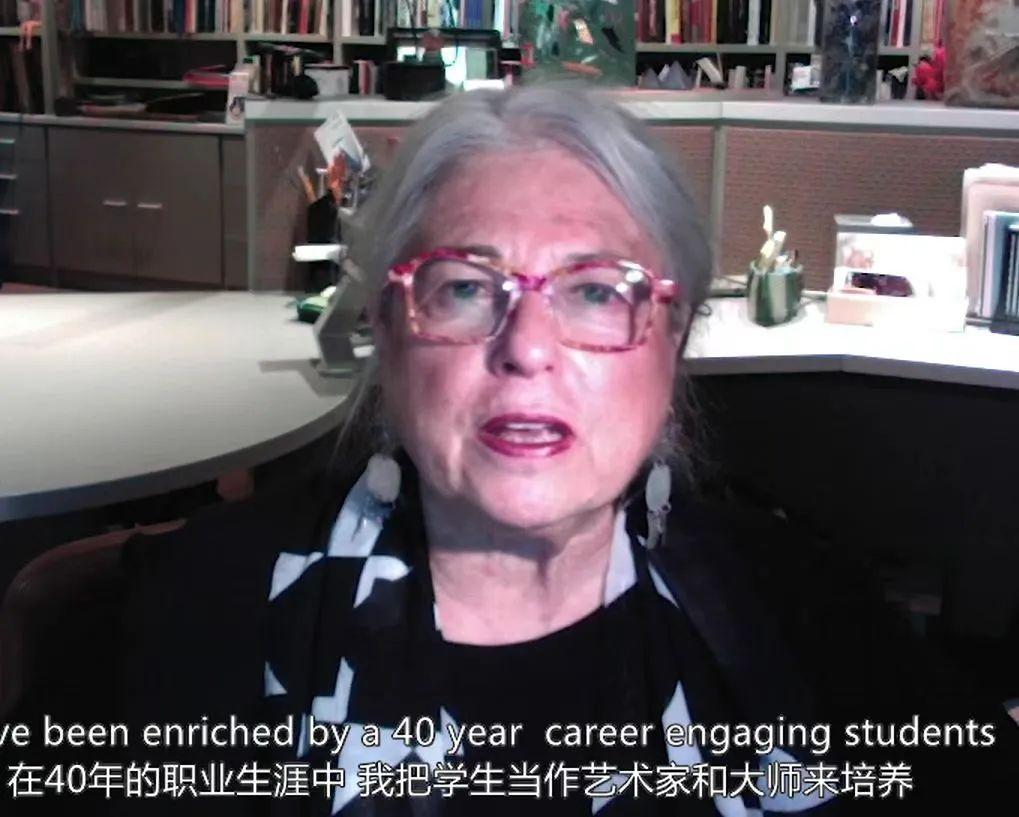
Judith Schwart, Emeritus Professor of New York University and Vice President of International Academy of Ceramics, delivered a video speech at the forum. Combing her experience in education for 40 years, she pointed out that fostering students’ creative thinking is the key to ceramic education. Humanities courses should not be seen as adjuncts to studio courses, but as powerful tools in the core curriculum, and she called on teachers in studios and academia to carefully refine the content of students’ works and guide students to understand social responsibility.
